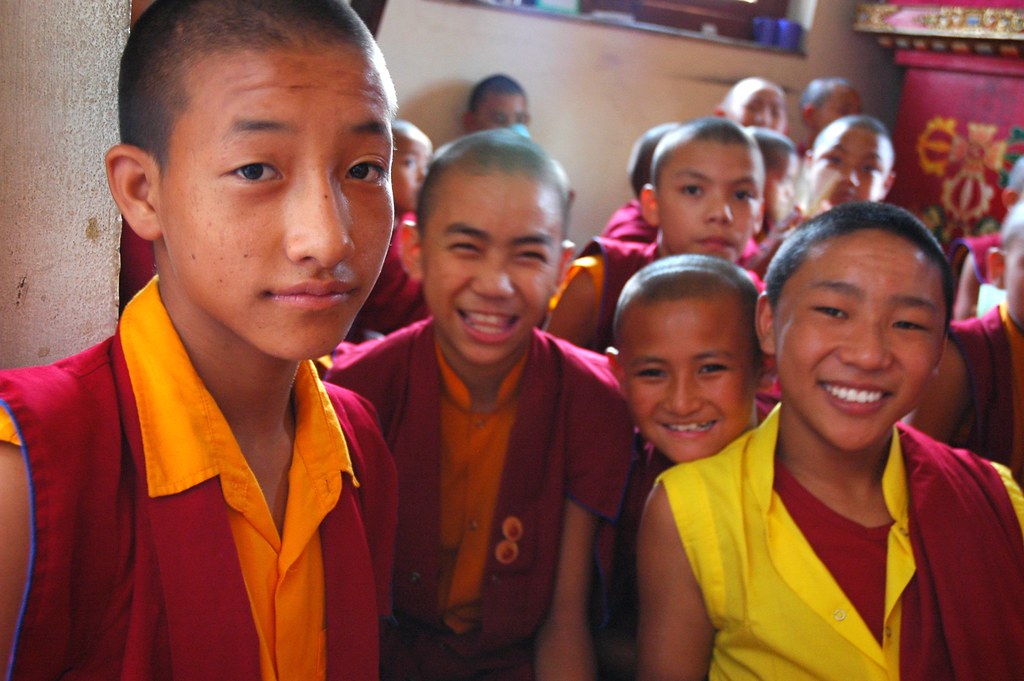
The Philosophy Behind Bhutan’s Gross National Happiness
In a world often obsessed with economic indicators and material wealth, Bhutan stands out as a beacon of a different approach to national well-being. The small Himalayan kingdom has long embraced the idea that true prosperity goes beyond financial metrics. At the heart of Bhutan’s unique philosophy is the concept of Gross National Happiness (GNH).

In this blog post, we will delve into the profound philosophy behind Bhutan’s GNH, exploring its origins, key principles, and the impact it has on the nation’s social fabric.
The Origin of Gross National Happiness
Bhutan’s commitment to prioritizing happiness over economic growth can be traced back to the 1970s when the Fourth King of Bhutan, King Jigme Singye Wangchuck, introduced the concept of Gross National Happiness. This visionary monarch recognized that a nation’s success should be measured not just by its GDP but also by the well-being and happiness of its citizens.
The GNH philosophy was formalized during the 1972 International Conference on Human Values in Bhutan, where King Jigme Singye Wangchuck declared, “Gross National Happiness is more important than Gross Domestic Product.” This marked the beginning of a paradigm shift in Bhutan’s approach to development, emphasizing a holistic and sustainable model that encompasses spiritual, social, cultural, and environmental dimensions.
The Four Pillars of Gross National Happiness
The GNH philosophy revolves around four key pillars, each representing an essential aspect of human well-being. These pillars serve as the foundation for Bhutan’s development policies and guide the nation towards a more balanced and harmonious existence. These are as follows:
Sustainable and Equitable Socio-Economic Development
Bhutan acknowledges the importance of economic development but emphasizes that it should be sustainable and equitable. The focus is on ensuring that economic growth benefits all citizens, narrowing the wealth gap and promoting social justice. By prioritizing the well-being of the entire population, Bhutan aims to create a society where no one is left behind.
Conservation of the Environment
In Bhutan, nature is not seen as a resource to be exploited but as a source of inspiration and well-being. The nation is committed to maintaining a pristine environment, and its constitution mandates that at least 60% of the land must be covered by forests. This commitment reflects Bhutan’s understanding that a healthy environment is crucial for the overall happiness and prosperity of its people.
Preservation and Promotion of Culture
Bhutan places a high value on its rich cultural heritage, recognizing that cultural identity plays a significant role in shaping individual and collective happiness.
The nation strives to preserve its traditions, language, and customs, fostering a sense of belonging and continuity. By celebrating and promoting its unique cultural tapestry, Bhutan aims to ensure that its citizens find fulfillment in their shared history and identity.
Good Governance
Central to Bhutan’s GNH philosophy is the belief that good governance is essential for fostering happiness. The nation follows a democratic system that prioritizes the well-being of its citizens. The government is accountable, transparent, and responsive to the needs of the people, creating a foundation of trust and cooperation between the state and its citizens.
Measuring Happiness: The Nine Domains
To quantify the intangible concept of happiness, Bhutan has developed a comprehensive framework comprising nine domains, each representing a different aspect of well-being. These domains provide a nuanced understanding of the factors contributing to the overall happiness of the Bhutanese people:
Psychological Well-being
Health
Education
Time Use
Cultural Diversity and Resilience
Good Governance
Community Vitality
Ecological Diversity and Resilience
Living Standards
By assessing these domains, Bhutan aims to create policies and initiatives that address the diverse needs of its population, ensuring a holistic and inclusive approach to happiness.
Impact on Bhutanese Society
Bhutan’s commitment to Gross National Happiness has had a profound impact on its society, shaping the way people live, work, and relate to one another. One of the most notable outcomes is the emphasis on community and social bonds. In Bhutanese culture, the concept of interdependence is deeply ingrained, and the community plays a crucial role in providing support and a sense of belonging.
Furthermore, the focus on sustainable development has made Bhutan a pioneer in environmental conservation. The nation’s commitment to maintaining a carbon-neutral status and prioritizing renewable energy reflects its dedication to preserving the planet for future generations.
Education is another area where Bhutan’s GNH philosophy has made a significant difference. The emphasis on holistic education that nurtures not only academic skills but also social and emotional intelligence aligns with the goal of producing well-rounded individuals capable of contributing meaningfully to society.
Challenges and Criticisms
While Bhutan’s pursuit of Gross National Happiness has garnered international admiration, it is not without its challenges and criticisms.
Some argue that the concept is difficult to measure accurately and may be subjective, making it challenging to implement as a policy framework. Others suggest that the focus on happiness could potentially overshadow the need for economic development in a world where financial stability is a pressing concern for many.
Bhutan’s Gross National Happiness stands as a bold and visionary philosophy that challenges the conventional measures of a nation’s success. To witness the warmth and happiness of the Bhutanese people, plan your customized itinerary with Acqua Travel.




